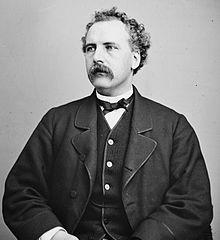Alexander Pope Quotes - Page 20

Where's the man who counsel can bestow, still pleased to teach, and yet not proud to know.
True friendship's laws are by this rule express'd, Welcome the coming, speed the parting guest.
Virtue she finds too painful an endeavour, content to dwell in decencies for ever.
Heaven breathes thro' ev'ry member of the whole One common blessing, as one common soul.
What's fame? a fancy'd life in other's breath. A thing beyond us, even before our death.
Pleasures are ever in our hands or eyes; And when in act they cease, in prospect rise.
Not grace, or zeal, love only was my call, And if I lose thy love, I lose my all.
Of all affliction taught a lover yet, 'Tis true the hardest science to forget.
Satire's my weapon, but I'm too discreet To run amuck, and tilt at all I meet.
Mark what unvary'd laws preserve each state, Laws wise as Nature, and as fixed as Fate.
To balance Fortune by a just expense, Join with Economy, Magnificence.
To rest, the cushion and soft dean invite, who never mentions hell to ears polite.






